Kiefer Sutherland: “The closest Jack Bauer ever would have been to a guitar was smashing it over someone’s head”
The Hollywood star and acclaimed singer-songwriter talks broken hearts, modded Teles, pawning presents for guitar money, and how hopefulness informs new album Bloor Street
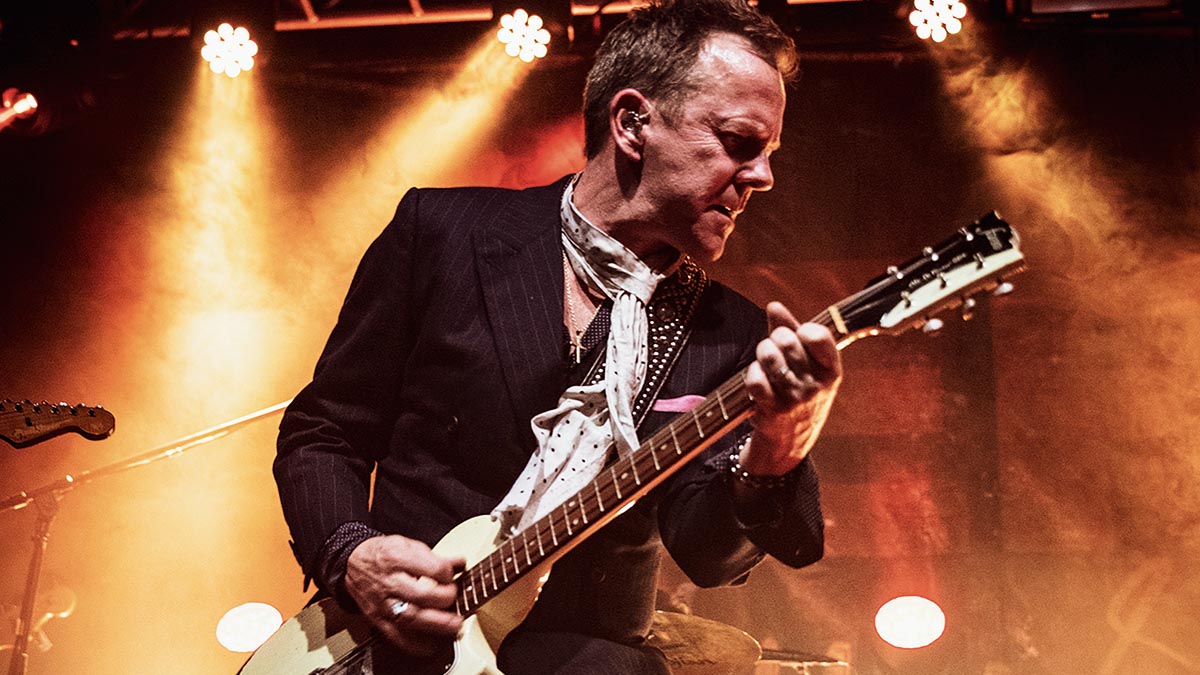
We don’t quite have 24 hours with him (more like a strict 30 minutes). But it’s remarkable how closely an interview with Kiefer Sutherland resembles a chat with a normal human being.
Answering the phone from Los Angeles in that unmistakable honey-and-grit drawl, he’s the most gracious megastar you’re ever likely to encounter, more like a guitar shop regular than the man who stared from your childhood Lost Boys poster as a peroxide vampire.
At the grand old age of 55, Sutherland is paying his dues all over again. Unlike his movie and TV career – a context in which he’s been a stone-cold icon since Stand By Me, 35 years ago – the Canadian’s two country albums since 2016 have seen him shinning up the greasy pole and playing venues that can barely contain his star power.
But aside from the scale, he considers, maybe his day job has more in common with third album, Bloor Street, than it appears. “The thing I love about acting is that I get together with a group of people to tell a story. Americana music is kinda like that, too.”
What subjects came up as you wrote Bloor Street?
“I couldn’t help but be aware of the struggles people were having to endure during the pandemic, economically, emotionally and from a mental health perspective. The songs I naturally started writing – Two Stepping In Time, Bloor Street, So Full Of Love – were incredibly hopeful.
“Even a song like Set Me Free, which is really playful. Y’know, I’m at an age now where I feel like a used car and I thought it would be funny to write a song from that perspective: a used car wanting one last great owner. I can be cynical and pessimistic, but these songs were really positive.”
Get The Pick Newsletter
All the latest guitar news, interviews, lessons, reviews, deals and more, direct to your inbox!
A Boy Named Sue, there was no mistaking what that song was about. Whereas I could describe five amazing Led Zeppelin songs and I have no f**king idea what they’re about
Did you find yourself writing about harder themes, too?
“Going Down is about that first real break-up that leaves a mark on you for life. I think, in many ways, that’s what takes you from a teenager to an adult and realising that it’s not all gonna be perfect and there are going to be things you want in life that you are not going to get.
“Outside of the two per cent of the population that fell in love with their high school sweetheart and have been married for 55 years – the other 98 per cent of us will understand this song.”
Your three albums so far have leant towards Americana and country. Why does that music speak to you?
“I was a huge AC/DC and Led Zeppelin fan as a young person, but I began listening to country when I started professionally rodeoing. I was a team roper on the TRC [Team Roping Championships] circuit and I’d drive around the US with a couple of cowboys, just going from rodeo to rodeo. That was my first real exposure to country, and when I was introduced to storytelling in the context of music.
“I mean, when I listen to old songs by Hank Williams or Kris Kristofferson – or a beautiful imagery writer like that – it’s a very simple story with a beginning, middle and end. Bob Seger, Merle Haggard, Johnny Cash… and I know he didn’t write a lot of his songs, but the way he would perform them.
“A Boy Named Sue, there was no mistaking what that song was about. Whereas I could describe five amazing Led Zeppelin songs and I have no fucking idea what they’re about.”
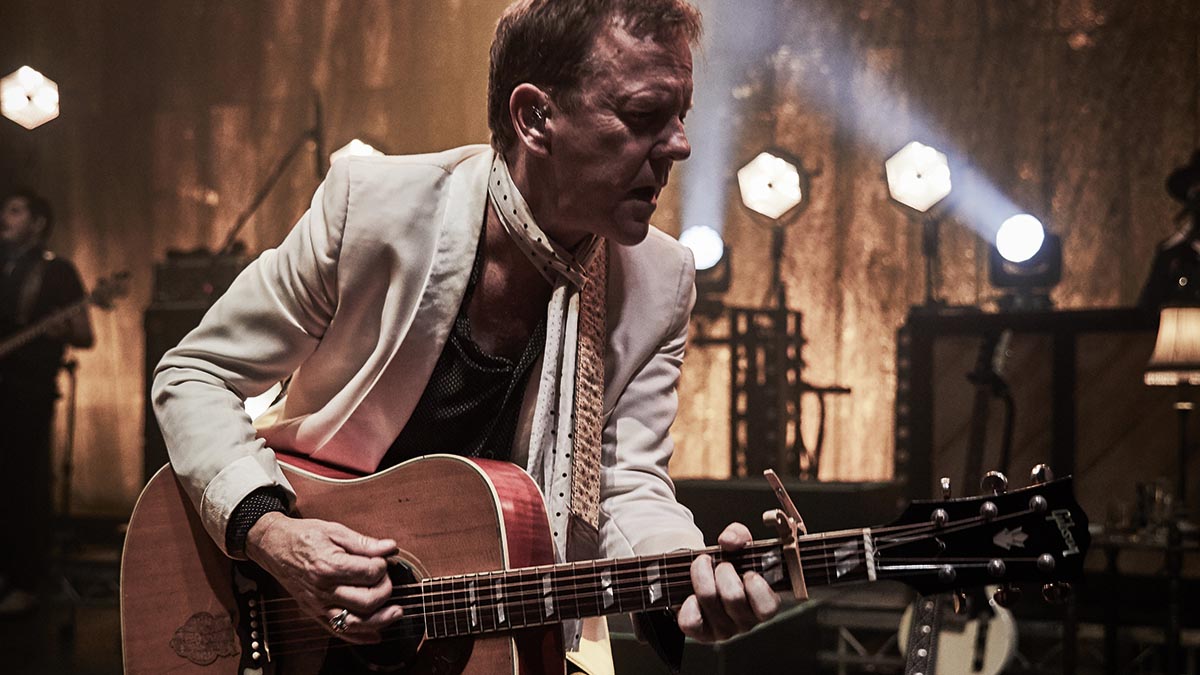
How do the songs tend to come for you?
“Certainly, on the first two records [2016’s Down In A Hole and 2019’s Reckless & Me], I had a lot of help from Jude Cole and I was really learning how to write songs properly. And then I would hit prolific moments where I would write a lot of songs.
“I wish I was a guy like Jackson Browne who got up at nine o’clock, put the kettle on, sat down at the piano and basically wouldn’t get up until six o’clock and he’d write two or three songs. Ed Sheeran sounds like that kind of guy, too, which I am so envious of. You treat it like a job and you’re a nine-to-fiver.
“For me, I started realising that something had to fall from the sky, trigger a memory and that’s how I would start to write. It could really find me at any moment. There’s a song on this record called Nothing Left To Say. I was sitting in a bar watching a couple. They didn’t say a word to each other. They were looking at each other’s phones, eating their meals. They were sitting together, but that was about it. I just said, ‘Oh shit, I have to go home’ – and I wrote the song in 20 minutes in my kitchen.”
Who handles the guitar work on the record?
“Well, I’m a rhythm man, really nuts-and-bolts. On the record, I had Austin Vallejo, who has been my right-hand guy for seven years. And then Doug Pettibone who joined us on the last two tours, and he had played with Lucinda Williams [and John Mayer]. Both are extraordinary guitar players.
“When we were recording the record, we would lay down the rhythm tracks and a scratch vocal, all in one pass. Then Doug would play a solo, Austin would play a solo, and we’d pick whichever one we liked – and that would be the last thing to go on the song.
“It got kind of competitive between those guys, which was really fun. So both of them are equally sprinkled around the record. And then Waddy Wachtel, who’s just such a great slide player, is on a couple of tracks as well.”
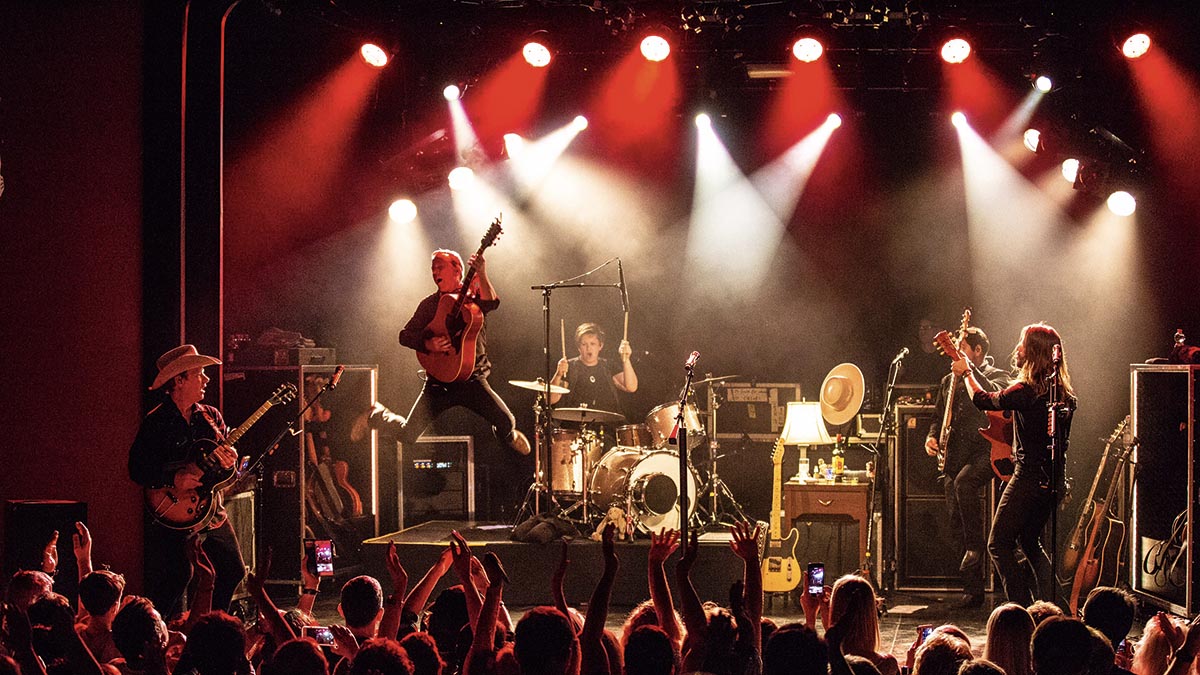
How did the guitar come into your life?
“Well, my first Yamaha acoustic was awful. The first few guitars were awful. I remember Christmas being a funny time when I was 12 or 13 because I would get presents and say, ‘Oh my gosh, I really like this, thank you so much.’ But then, by January 2, I would be in a pawn shop, pawning those Christmas presents so I could trade in whatever guitar I had and slowly move up the ladder.
“I remember I had an S-type guitar, but it only had one pickup – the back pickup – so there was no real warmth to it at all. It just wasn’t a nice guitar. And then my first Gibson – which has actually made kind of a comeback, but it shouldn’t have – was a Gibson Sonex. You know, that’s what you got when you couldn’t afford a Les Paul or maybe an SG.”
What was the significance of Toronto’s Bloor Street to you as a young player?
“Well, Bloor Street and Yonge Street were the two main streets in Toronto, and where they intersect was the city centre, both economically and with regards to what was cool, with bars and clubs and stuff. Certainly, back in 1977, it was where it was at.
“When I look back on being a child, we left our houses at nine in the morning and we were allowed to go do whatever we did as long as we were home by six. So me and my friend Stephen Barker, we’d hop on the train, get down to Yonge and Bloor and walk down to Steve’s Music Store on Queen Street. We shot Designated Survivor in Toronto and I just got really nostalgic about being home for the first time for over a decade.
“So that title song wrote itself pretty quickly. It’s a song about getting to a later part in life and just realising that this place, this is where you’re from and I’ll love it until the very end, and it’s not perfect, but it’s mine.”
Coming up, were you more attracted to guitar heroes or songwriters – to Jimmy Page or Jackson Browne?
“Well, Jimmy Page can really play the guitar, and so can Jackson Browne but in an incredibly different way. Jimmy Page certainly was a guitar hero. Keith Richards was a guitar hero. Eddie Van Halen. Angus Young. Those were bands that when I was younger – 12, 13, 14 years old – I was listening to. But then, in my 20s, Jackson Browne’s Running On Empty was a big record for me.
“The songwriting stood out and he was such a great storyteller. Y’know, Running On Empty was a song he wrote after his wife killed herself. It’s one of the most heartbreaking records. Tracy Chapman’s first record, too. Again, her storytelling in her songwriting was incredibly moving.”
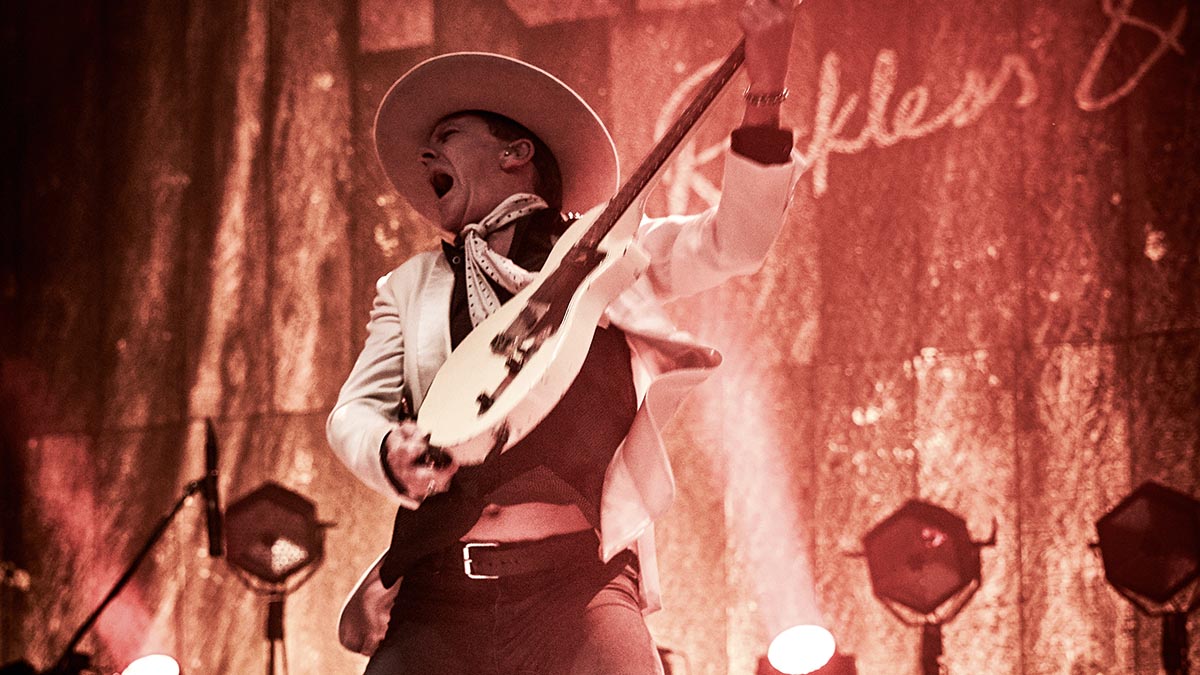
What are the most cherished guitars in your collection now?
“I have a 1939 or 1940 Martin single-O, which is a pretty rare guitar. It’s nice and small. The bus that I tour in is also the bus I use when I’m making a movie. So that guitar just fits really well on the bus and I use it to write a lot of songs. And then, traditionally, I’ve used a Hummingbird and a Dove, both beautiful guitars that I’ve toured with.
Recently, I came across a British maker, Atkin Guitars. They make a D37 pre-war and it’s the best-sounding live acoustic I’ve ever played in my life
“But then, recently, I came across a British maker, Atkin Guitars. They make a D37 pre-war and it’s the best-sounding live acoustic I’ve ever played in my life. They never gave me one. They don’t pay me. I don’t work for them. But it’s just blown me away.
“I played an Americana festival in Nashville, with Rocco DeLuca on pedal steel and Marc Copely on guitar, and the rhythm parts I was playing on this Atkin just sounded the most even I’d ever heard. The blend between the low E and high E was just magical.
“Chords actually sound like a singular note as opposed to one thing being brighter and contrasting another. I just couldn’t get over this guitar. So that’s my new favourite. Almost everything I have is really old, so to say that about a new guitar, for me, means a lot.”
How about your electric collection?
“I have a ’67 Tele. I’ve got a ’70 Tele that I use a great deal on the road. I’ve also got a Tele with a Fender humbucker in the front, which was standard, and then in the back I have a Seymour Duncan Hot Rails. In a bar, or wherever we’re playing, I can get a really gritty tone out of that at a pretty low volume. That’s the guitar that I’ll play live on.
“Then there’s another guitar from Fano, and I have a white and a black SP6. Even when we opened up for Muse, I would use that guitar. We’d never played an arena show before, and when that guitar was stretched as high and far as it would go, that pickup really held together because I had a Seymour Duncan Hot Rails in the back of that as well. And for most of the songs, I’m sitting on that back pickup.”
Do you have favourite amps, too?
“For the longest time, a Canadian amp maker Wizard Amps were my favourites. I would tape up the logo because not a lot of people knew about them, and I could just get out such a great tone at low volume. And then, on the smaller amp side, there’s a great amp maker in Los Angeles called Black Volt.
“I’ve got a 10-inch Custom Crazy Horse and a 12-inch – both single-cabinet – and they’re just extraordinary amps, mimicking a great old Tweed, y’know, from the early ’60s. I can get the tone I’m looking for out of that amp pretty early on in the volume and distortion stages as opposed to having to crank it up.”
Have you found your tastes have changed as you’ve become a huge star?
“Well, I’m certainly not a huge star, but playing live as much as we have has changed it, yeah. In the three years before the pandemic, we played 500 shows and I was saying to someone else, ‘Y’know, I do know a few bands that played as much as we did, but none of them were making a television series at the time, and none of them had made three films as well.’
“So any days off we had, we were playing live, and yeah, that can’t help but change what you’re looking for out of a guitar. The Hummingbird and Dove might end up actually being a better recording guitar because they are more dynamic.
“But the Atkin guitar and the even quality and the even distribution of tone is such that when you go to play live, it’s not going to be overly bright. It’s not gonna pierce through everything. It’s gonna have a unique blending quality. So those are attributes of an acoustic guitar that I would never have thought of 10 years ago.”
Do you find the guitar helps you turn off from the scrutiny of fame?
“Well, the scrutiny of fame, I couldn’t give a shit about. But what it does help you with is releasing pressure. A lot of people I know ride motorcycles. You can’t think about anything else – or you’ll die. You can’t think about all the other minutiae that might be bothering you or upsetting you or panicking you. So it’s a form of meditation.
When I was doing a show like 24, the guitar was a great way of just tuning out, just focusing on one thing
“The same thing with a guitar. Even if you’re just playing scales or picking patterns. Even if you’re trying to get to a place where you can play unconsciously, it still requires an incredible amount of focus. And so, in that sense, when I was doing a show like 24, which was the most I’d ever worked – it lasted a decade and it was five days a week, 10 months a year, 14 hours a day – there were hours between setups sometimes, and the guitar was a great way of just tuning out, just focusing on one thing.
“Then there are the moments when you’d have a breakthrough and all of a sudden something worked and you’d say, ‘Holy shit, I did that picking pattern.’ So in many ways, the guitar for me has been like a best friend. I’ve had it with me for years and years by my side. And it’s the one thing that I go to when I want to get away.”
Do you think 24’s Jack Bauer would have been a guitar player?
“Not at all. I think the closest Jack Bauer ever would have been to a guitar was smashing it over someone’s head. He was not that guy.”
You’ve played so many fantastic characters. But how important is it to show your true self as a musician?
“Well, I think that’s the real difference, isn’t it? I’m not Jack Bauer. I’m not David from The Lost Boys. I’m not President Kirkman. Those are characters. The real difference with songwriting for me is that there is no character. These are songs that are written by me, from me, about either my life or a perspective that I have on life.
“What’s so exciting for me are the moments on tour when I’ve been able to say, ‘This is why I wrote this song, and maybe you have a similar experience.’ And those people in the audience that have, we get to realise that we have a little more in common than we thought when we walked in the door.”
- Bloor Street is available now via Cooking Vinyl.
Henry Yates is a freelance journalist who has written about music for titles including The Guardian, Telegraph, NME, Classic Rock, Guitarist, Total Guitar and Metal Hammer. He is the author of Walter Trout's official biography, Rescued From Reality, a talking head on Times Radio and an interviewer who has spoken to Brian May, Jimmy Page, Ozzy Osbourne, Ronnie Wood, Dave Grohl and many more. As a guitarist with three decades' experience, he mostly plays a Fender Telecaster and Gibson Les Paul.
“I didn’t think anybody would believe I got it from George Harrison. I figured they’d call me a liar”: Vintage guitar guru Norman Harris names the 5 most memorable guitars that have come through Norman's Rare Guitars
“What blew me away was that everyone wanted the curly maple top. People were calling, saying, ‘I’ve got to have the bird inlays’”: Paul Reed Smith on raising the Standard 24, finally cracking the noise-free guitar and why John Sykes is a tone hero
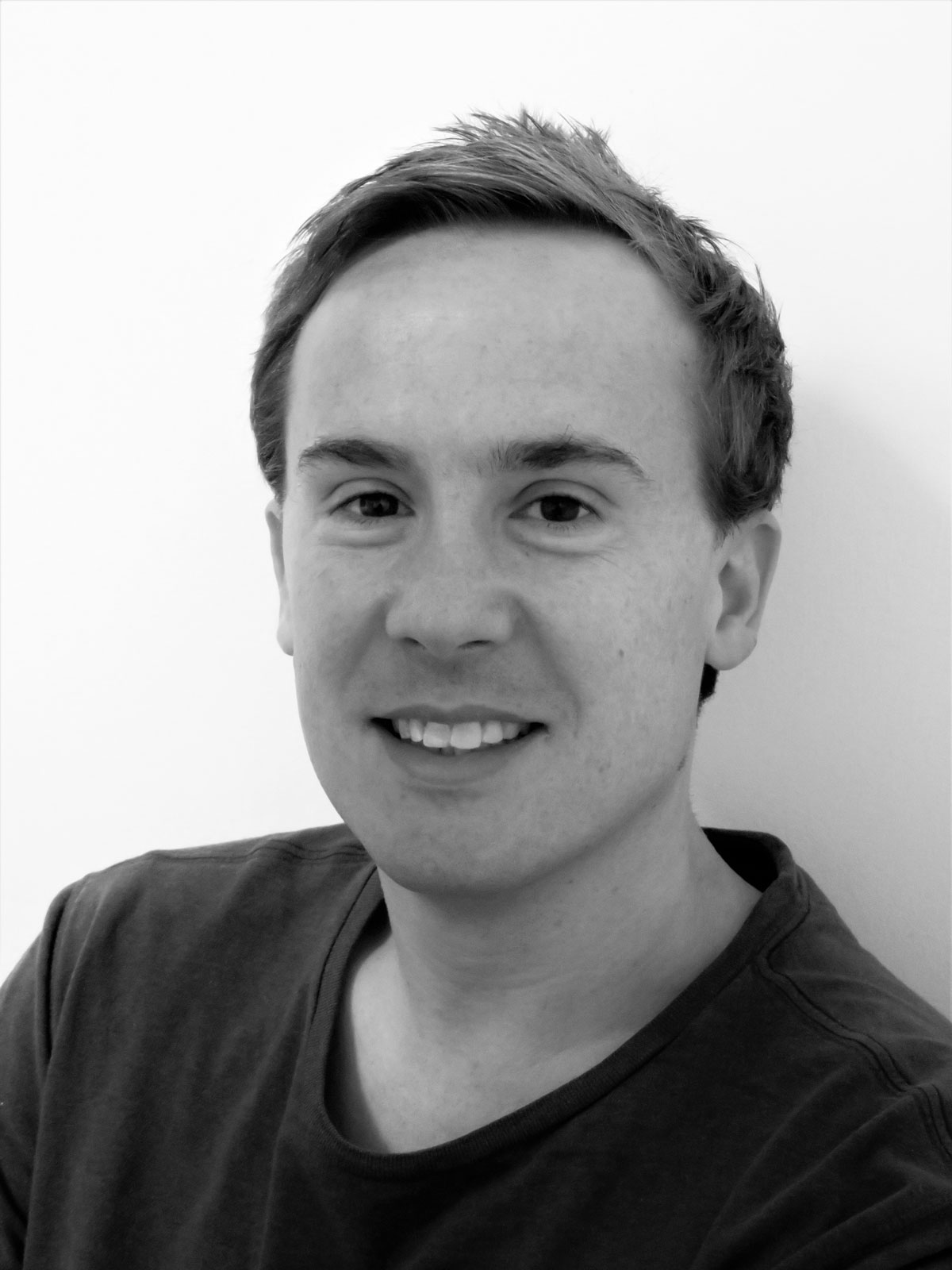




![[from left] George Harrison with his Gretsch Country Gentleman, Norman Harris of Norman's Rare Guitars holds a gold-top Les Paul, John Fogerty with his legendary 1969 Rickenbacker](https://cdn.mos.cms.futurecdn.net/TuH3nuhn9etqjdn5sy4ntW.jpg)





